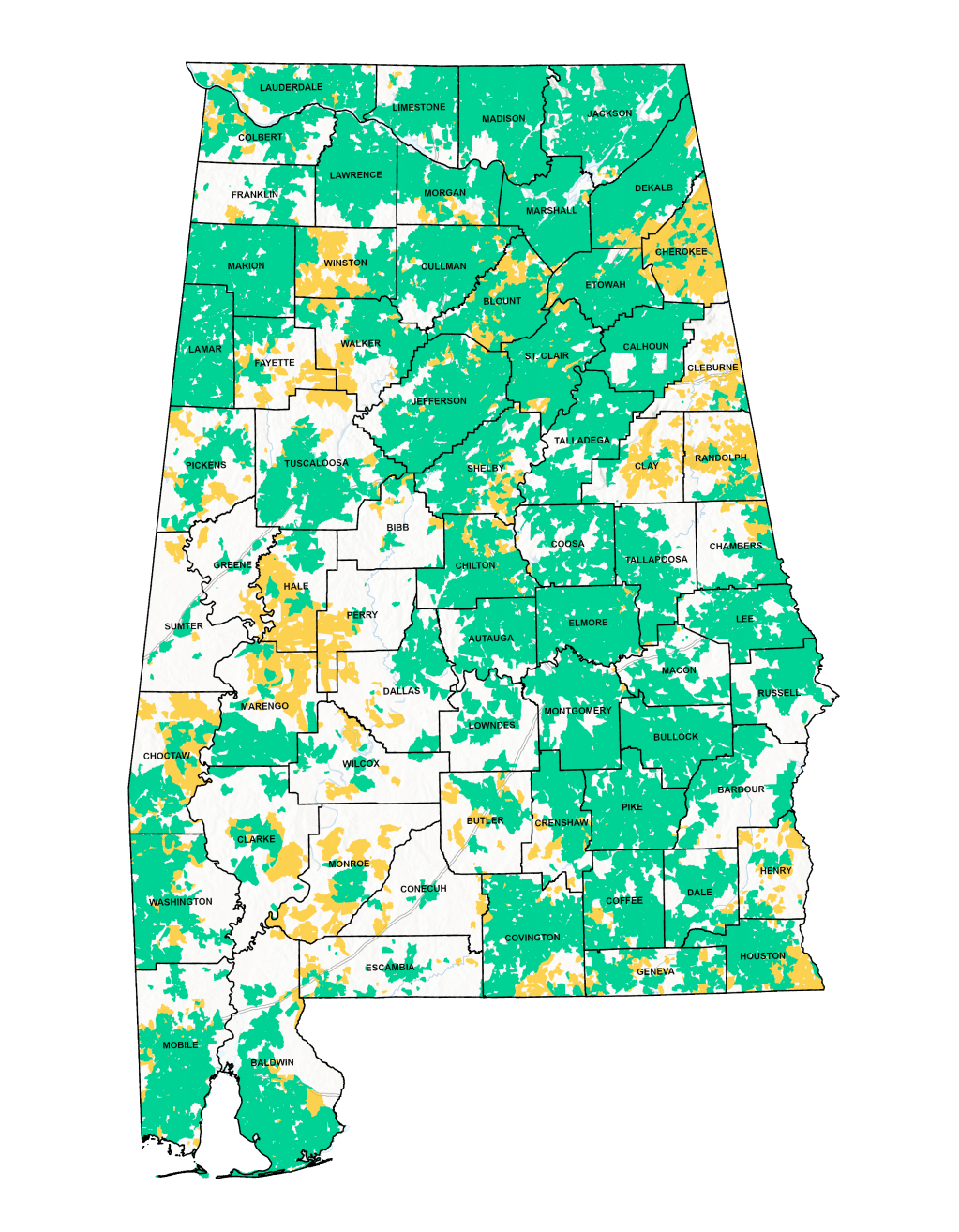Alabama Continues To Bridge The Digital Divide
Alabama officials announced earlier this year that the state has received a substantial infusion of Federal funds for broadband infrastructure development, a move that should significantly impact – and improve – connectivity for its citizens.
The state’s commitment to connectivity is underscored by the passage of two bills earlier this year allocating $1.06 billion in federal funds from the American Rescue Plan Act (ARPA) and an additional $1.4 billion from the U.S. Department of Commerce’s Broadband Equity, Access, and Deployment (BEAD) program to strengthening broadband access throughout the state and bridging the digital divide.
Alabama’s ARPA Funds Allocation
The bill’s passage earlier this year represents a significant milestone in Alabama’s strategic allocation of ARPA funds. The plan earmarks $400 million for water and sewer projects, addressing crucial infrastructure needs. Another $339 million is allocated to healthcare costs, providing reimbursements for pandemic-related expenses and fostering the improvement of health services.
However, a substantial portion of the funds – $260 million – is dedicated to expanding broadband internet access, an investment that reflects the recognition of broadband as a cornerstone of economic development in the state.
What Is The American Rescue Plan Act (ARPA)
The American Rescue Plan Act (ARPA) is a comprehensive piece of legislation passed by the United States Congress and signed into law by President Joe Biden in March 2021. The primary aim of the ARPA is to provide significant economic relief and support to individuals, businesses, and state and local governments affected by the COVID-19 pandemic. The legislation includes various provisions to address public health challenges, stimulate economic recovery, and mitigate the widespread impact of the pandemic.
Within the ARPA, there is a specific focus on addressing the digital divide by allocating funds for the expansion of broadband internet access. Recognizing the importance of reliable and high-speed internet for various aspects of life, including education, healthcare, and remote work, the legislation encourages investments in broadband infrastructure to bridge the connectivity gap in underserved and rural areas.
Alabama’s BEAD Program Funds Allocation
The momentum towards comprehensive broadband expansion in Alabama received a massive boost with the announcement of $1.4 billion from the Broadband Equity, Access, and Deployment program. Gov. Kay Ivey, a key proponent of improved connectivity, welcomed the funding, declaring it a significant step toward achieving universal high-speed internet access in the state.
What Is The Broadband Equity, Access, and Deployment (BEAD) Program?
In November 2021, President Joe Biden signed the Infrastructure Investment and Jobs Act into law. One of its hallmark provisions was establishing the Broadband Equity, Access, and Deployment (BEAD) Program, administered by the National Telecommunications and Information Administration (NTIA). This initiative allocates over $42 billion to construct robust broadband networks, introduce subsidies to alleviate the costs for internet services in lower-income households, and implement programs facilitating device access and training to utilize the upgraded networks.
Notably, the BEAD Program signifies a historic moment as it marks the first instance of the federal government offering grants to states expressly for the purpose of addressing the digital divide in the United States. The legislation outlines three key priorities for the utilization of funds: infrastructure development, the formulation of broadband action plans, and the implementation of programs to encourage user adoption of new networks.
Alabama’s Statewide Initiatives
The Alabama Department of Economic and Community Affairs (ADECA) is at the forefront of these broadband initiatives. Managing funds from ARPA, the Alabama Broadband Accessibility Fund, and the BEAD program, ADECA is driving progress in mapping, planning, and deployment efforts.
Alabama’s commitment to broadband expansion is not a recent development. Since 2018, the state has invested $88.6 million through the Alabama Broadband Accessibility Fund, supporting 109 projects. With the completion of these projects, over 82,000 households, businesses, and community institutions will gain access to broadband service. The state’s proactive measures, including the development of a broadband map and the Alabama Connectivity Plan, have laid a robust foundation for ongoing and future initiatives, and the Alabama BEAD Five-Year Action Plan outlines a further commitment to continued growth and development across the state.

Infinity Technology Solutions is proud to partner with state and local governments that are actively upgrading their broadband infrastructure to help bridge the digital divide in their communities. To learn more about our expertise and how we can assist you in developing, installing, and deploying an upgraded broadband infrastructure, complete the form below.
About Infinity Technology Solutions
Infinity Technology Solutions specializes in broadband and critical communications infrastructure development. We help our channel partners create and deploy private wireless, microwave backhaul, IP/MPLS, and optical networking technologies.
For more information, call or fill out the contact form below.